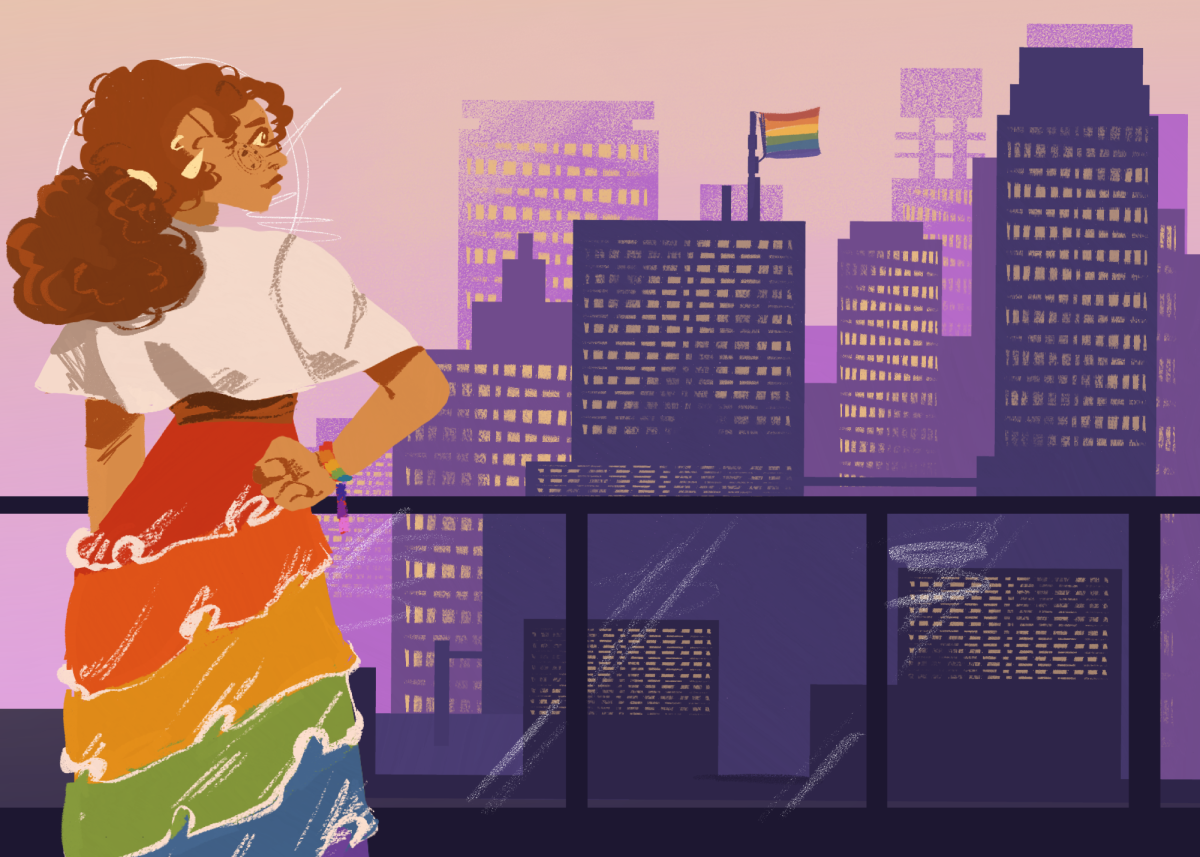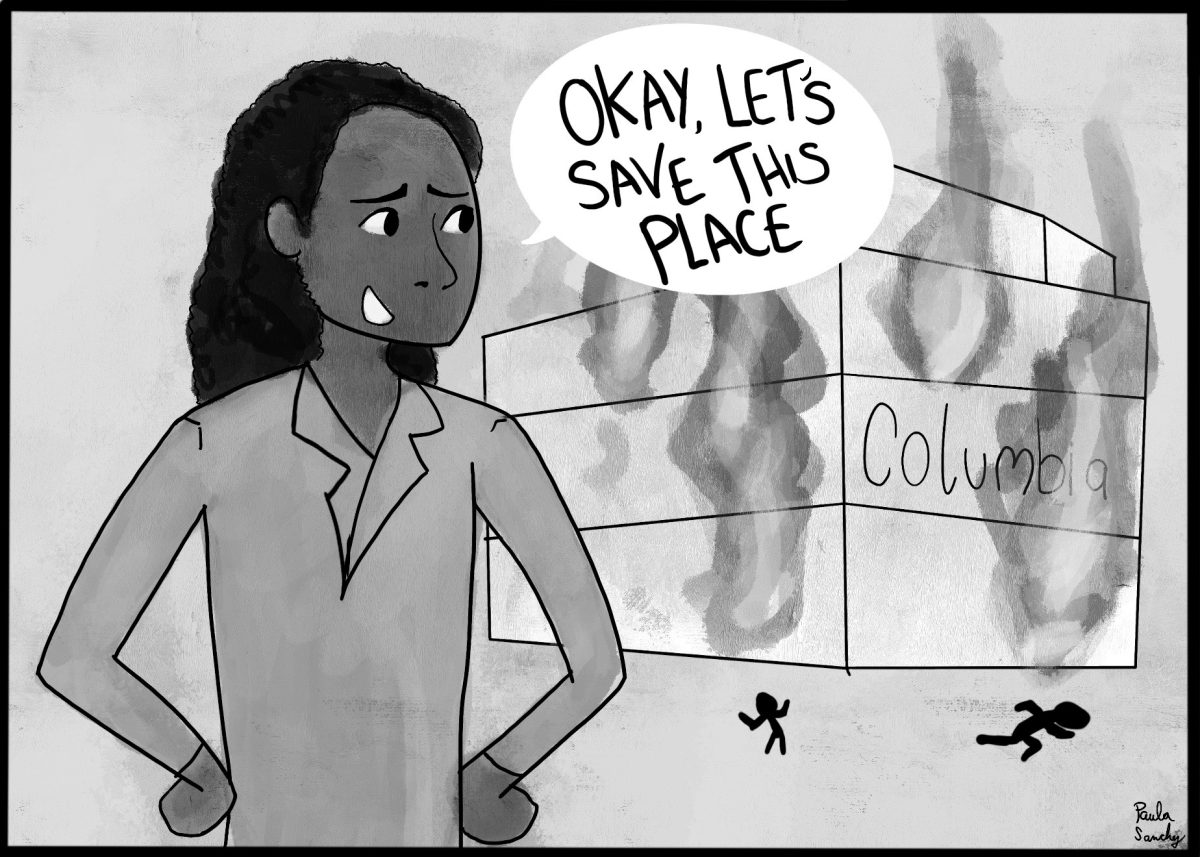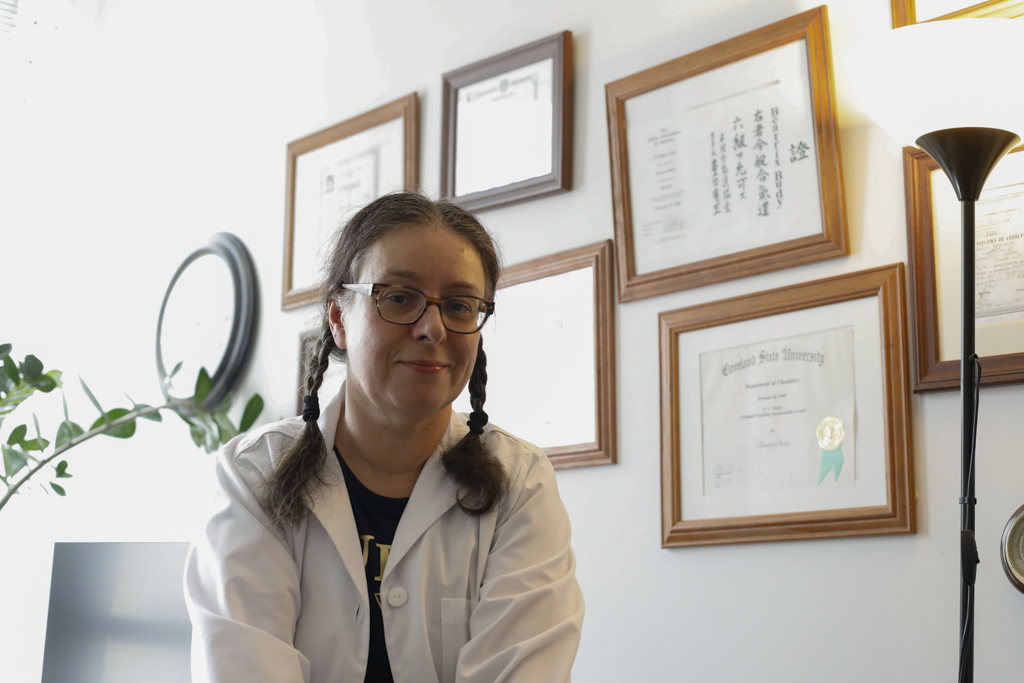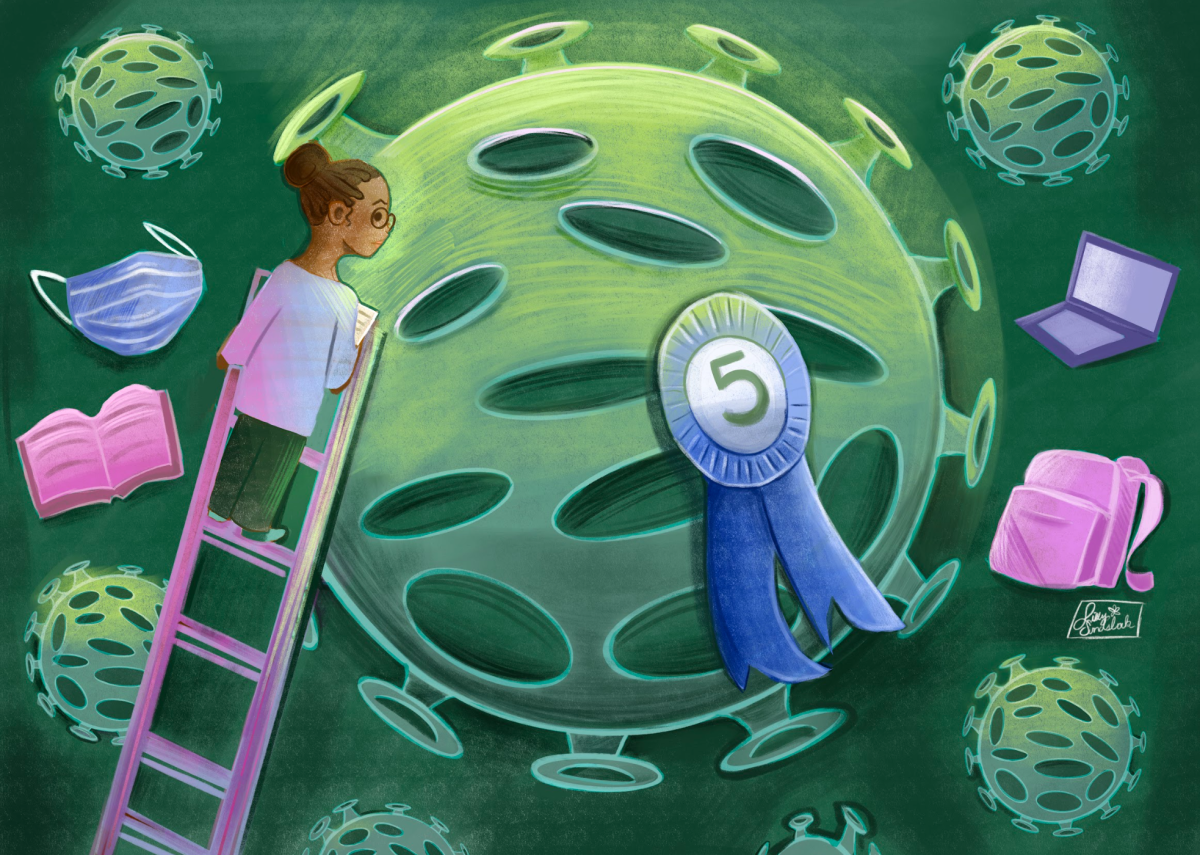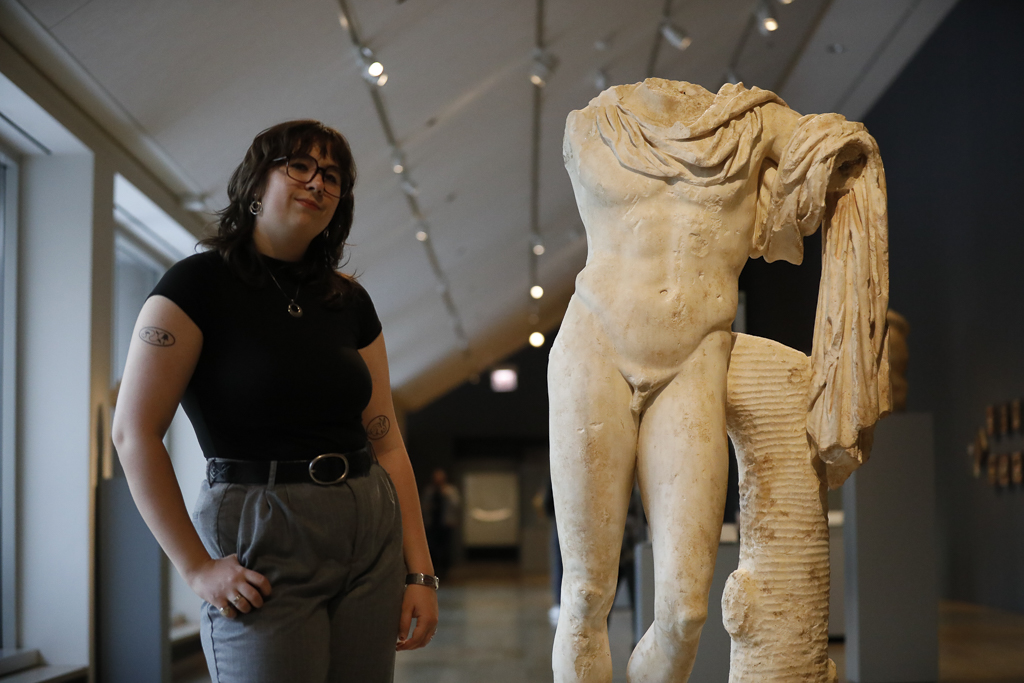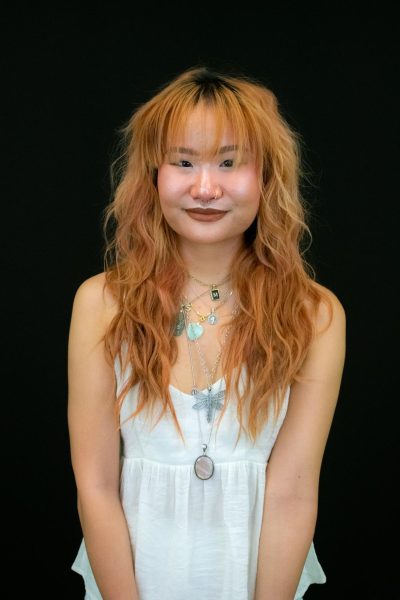In her “Contemporary Queer Issues” course at Columbia, Terri Griffith, an assistant professor in the School of Communication and Culture, asks students to bring in a relevant news story each week about challenges facing the LGBTQ+ community. “We’re really immersed in this right now, and frankly, it feels really scary,” Griffith said.
In the two months since President Donald Trump took office, his administration has issued numerous anti-LGBTQ+ directives and has gone after colleges and universities the administration deems to be “woke.”
In one of his first orders after taking office, Trump mandated that the federal government only recognize two genders, ordered agencies to remove statements and policies promoting gender ideology and dissolved the White House Gender Policy Council.
Some directives have been blocked by the courts, like an executive order threatening medical providers who provide gender-affirming care for people under 19. But other actions have been held, including the dismissal of transgender military service members and relocation of transgender women prisoners to male prisons or into isolation.
Griffith said that she’s “really overwhelmed by it all.”
Some colleges and universities have responded by renaming their DEI offices and programs or have removed their DEI resource pages altogether like Northwestern University did. The Chronicle of Higher Education reported in mid-March that 270 institutions across 38 states had made changes in regard to DEI, including Queens College in New York and the University of California system, which banned schools from requiring diversity statements from job applicants.
The consequences are real. The Trump Administration said it suspended $175 million of federal funding to the University of Pennsylvania for allowing transgender athletes to compete.
Some schools with less federal funding at stake have reaffirmed their commitment to DEI even as they tread carefully to avoid being targeted. This is what’s happening at Columbia.
In a town hall meeting last month, Senior Vice President and Provost Marcella David said that the college doesn’t believe they are violating any laws with DEI, and they want to make it known that what Columbia is doing is “non-discrimination.”
“They need to be learning in environments where they can do, where they can be respectful, where they can feel authentic and being able to be themselves, where there’s a notion of inclusivity that is capital “I,” she said in reference to students. “We’re going to remain committed to that.”
The college still lists an LGBTQ Office of Culture and Community on its website. When a Chronicle reporter visited the location on the fourth floor at 618 S. Wabash before Spring Break, they learned it was absorbed into Student Diversity and Inclusion in 2017, which is what the space is used for now.
Matthew Rillie, coordinator of student support and engagement for SDI, said while they weren’t part of the LGBTQ Office of Culture and Community, the office offered support and programming for queer students.
“That goal, along with the broader mission of cultivating community and affirmation for all students experiencing oppression on campus, is still core to who we are,” Rillie said, adding the college will continue to celebrate “Pride in May” to celebrate LGBTQ+ identities ahead of June, officially Pride month.
The Public Religion Research Institute reports that 28% of Gen Z adults identify as LGBTQ in 2024, and around one-third of Columbia’s undergraduates self-identify as part of the LGBTQIA+ community, according to the college’s pride webpage.
Avi Schwank, a senior illustration major, said she’s in a community with a lot of transgender and LGBTQ+ people, and the “incitement of hatred” will only weaken communities overall. In totality, these acts split people up into groups then further divide individuals who don’t get to have a voice, she said.
“There has to be a certain point where you recognize that it is undeniable, what’s being done is an act of fascism and dictatorship,” Schwank said. “Removing terminology is exactly what we have dehumanized other countries for doing, and the fact that we have been set back so far in the last 20 years over such a short span of time, by hatred and anti-individuality, is mind boggling.”
Griffith said that she spoke with her class about the removal of references to transgender and queer people from the Stonewall National Monument website “from which gay pride comes.”
“It’s not just anti-DEI, but it’s literally erasing history,” Griffith said.
Ryan Perlatti, a first-year game arts major, said that he wasn’t surprised by Trump’s actions, and that “it’s unfortunately not unprecedented” due to what was outlined in Project 2025.
“When friends who are queer and trans are relying on gender-affirming care, it’s very frustrating to see these things come up over and over again,” Perlatti said.
Andrea Aranda, a first-year acting major, said that hearing about the threats on the LGBTQ+ community breaks her heart. As a queer person herself, she doesn’t feel safe with Trump in power, she said.
“Honestly, it’s like I’m hiding myself back in the closet again,” Aranda said. “They’re taking away [queer] rights and letting us express ourselves.”
Similar to Aranda, Cosette Winter, a first-year musical theatre major, said that she was worried about the future for those in the LGBTQ+ community.
“I have dated women before, and if I were to ever date a woman or someone non-binary again, how do I know if I’ll be able to marry them if that’s what we want to do in the future?” she said. “Things are being stripped away slowly, rights and choices, so I’m nervous.”
Perlatti said that he is very fortunate to be in Chicago and at Columbia since they’re both a bit more accepting of people of different backgrounds. As for his partner living in Arizona, Perlatti said it’s more difficult for him to be out and live comfortably as a queer person, especially since his college has a lot of conservative guest speakers.
“For queer people, immigrants and people of color, which I happen to be all three of, building community is important,” Perlatti said.
Griffith said that she believes the college’s community is very special, and everyone part of the college is here because they all value diversity. Eighty-four percent of students believe that the college values diversity, and 90% of students “feel they can express their identities on campus,” according to the college’s pride webpage.
Schwank said what’s happening in the country isn’t for the people, despite how Trump may frame his orders. “It’s not even an effort for safety, especially considering how misrepresented and intended hatred is towards the LGBT community,” she said. “When you run out of marginalized groups to put down and when you run out of things to spite each other against, who comes next?”
Copy edited by Patience Hurston
Resumen en Español:
En su curso “Contemporary Queer Issues” en Columbia, Terri Griffith, profesora asistente de la Escuela de Comunicación y Cultura, pide a los estudiantes que traigan un ejemplo de periodismo relevante cada semana sobre los desafíos que enfrenta la comunidad LGBTQ.
En los dos meses transcurridos desde que el presidente Donald Trump asumió el cargo, su administración ha emitido numerosas directivas anti-LGBTQ y ha perseguido a los colegios y universidades que la administración considera “despertados”.
En una de sus primeras órdenes, Trump ordenó que el gobierno federal sólo reconozca dos géneros, ordenó a las agencias eliminar declaraciones y políticas que promueven la ideología de género y poner fin al Consejo de Política de Género de la Casa Blanca.
Algunas directivas han sido bloqueadas por las cortes, como una orden ejecutiva que amenaza a los proveedores médicos que brindan atención de afirmación de género a personas menores de 19 años.
Pero se han llevado a cabo otras acciones, como el despido de miembros transgénero del servicio militar y la reubicación de mujeres transgénero presas en prisiones masculinas o en aislamiento.
Algunos colegios y universidades han respondido cambiando el nombre de sus oficinas y programas de DEI o han eliminado por completo sus páginas de recursos de DEI, como lo hizo la Universidad Northwestern.
La Crónica de la Educación Superior informó a mediados de marzo que 270 instituciones en 38 estados habían hecho cambios con respecto a DEI, incluyendo Queens College en Nueva York y el sistema de la Universidad de California, que prohibió a las escuelas exigir declaraciones de diversidad a los solicitantes de empleo.
Resumen en Español por Araceli Ramirez
Texto editado por Manuel Nocera


